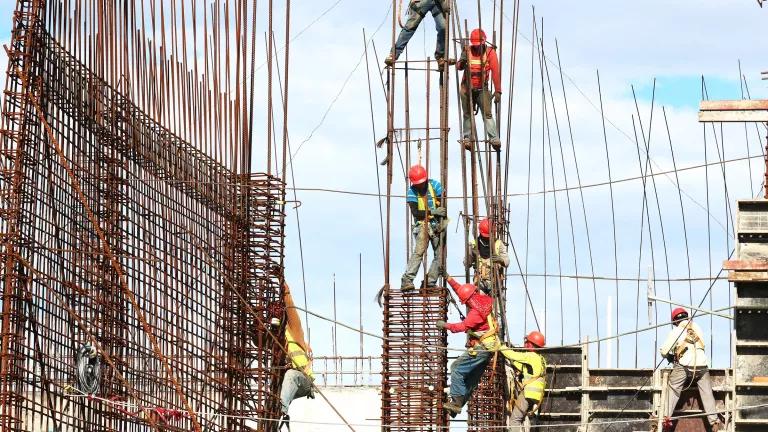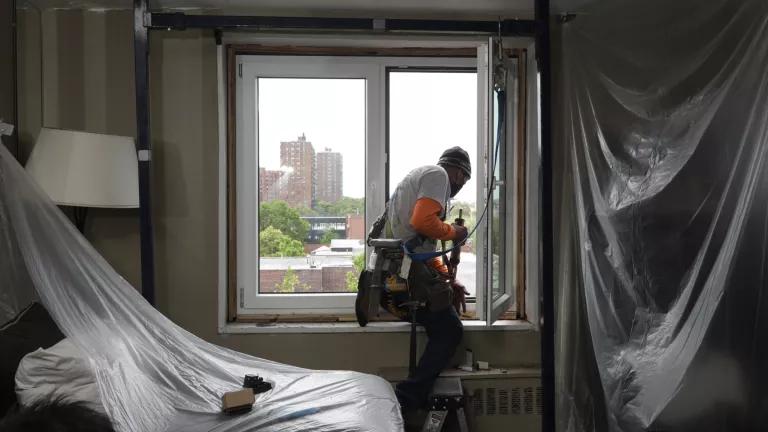Rebuilding Towards Justice
This Infrastructure Week cannot just be about pouring cement or digging trenches.

Pause, and look out your window—look up, down, and all around our streets, buildings, homes, cars, busses, the wires that carry our electricity, pipes that move our water and often fuel and ask: what would it mean if this was all built with justice in mind? What would it take for this to be a force for addressing climate change and ensuring our built environments can withstand what’s to come? That’s what Congress and the Administration invited us to do when the infrastructure law passed, following the precedent-setting Justice40 commitment to direct “40 percent of the overall benefits of relevant federal investments to disadvantaged communities.” We need investments in our infrastructure, and we need to do it right. The infrastructure we have has reinforced systemic racism –whether by building highways that divide and displace Black communities or a water distribution system that exposes Black, poor, and immigrant communities to higher levels of lead or many more examples—it does not reflect the values of equity, inclusion, or justice.
This infrastructure week falls six months after the passage of that unprecedented investment in those pipes, wires, streets, transit systems, buildings, and most importantly directs that investment to begin to secure justice for communities that have been marginalized by structural inequity. But laws aren’t magic, change doesn’t self-execute, and dollars need to be directed by thoughtful, effective, community- and justice-centered policies.
My colleagues share their thoughts on how to meet this moment:
- The $62 billion that the Department of Energy can spend should be used to achieve energy justice: ensuring access to the best low-energy-use home setups and clean energy, including community energy ownership, making sure our wires and grids can keep up for everyone, and making sure no household struggles to make ends meet because of energy costs.
- We have the tools we need to help states invest in projects that reconnect communities, increase transportation choices and reduce dependence on fossil fuels. These infrastructure dollars present the chance we need to use them. This moment requires us to mobilize for, among other things, bicycle and pedestrian infrastructure, transit, electric vehicle charging infrastructure, ferries, and traffic management.
- What if? What if we see highway investment as a force for shaking free from our dependence on fossil fuels and a cornerstone in creating a cleaner future? Combined with transit investment and community-driven investment in correcting past wrongs, this moment can be an inflection point in the role highways play in transportation justice.
- Partnering with communities and additional investment is necessary to make lead history and ensure investment creates an equitable system, taking a long-overdue step to end the racial and economic injustices in drinking water.
This infrastructure week cannot just be about pouring cement or digging trenches. We must hold the past and its lessons, while looking forward, focusing on the opportunities and needs to address the dual environmental and equity crises with our infrastructure, to finally live in an environment that reflects the values we hold today.




